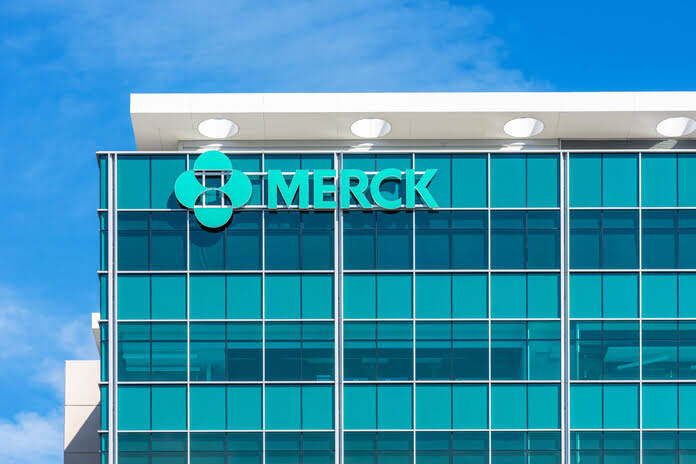Merck (NYSE:MRK) has announced that its prominent drug, Keytruda, has been granted an expanded label by the European Commission (EC) for its use in combination therapy for the first-line treatment of certain adult patients with gastric or gastroesophageal junction (GEJ) adenocarcinoma.
The EC’s approval allows for the utilization of Keytruda alongside trastuzumab and chemotherapy as a first-line treatment option for patients with locally advanced unresectable or metastatic HER2-positive gastric or GEJ adenocarcinoma, particularly in cases where tumors express PD-L1.
This development marks a significant milestone as Keytruda becomes the first immunotherapy to receive approval for the first-line treatment of this specific patient group.
The approval aligns with expectations, given that last month, the European Medicines Agency’s (EMA) Committee for Medicinal Products for Human Use (CHMP) recommended Keytruda’s approval for this indication.
Both the CHMP and EC decisions were influenced by the results from the phase III KEYNOTE-811 study, where patients treated with the Keytruda combination showed notable improvements in progression-free survival compared to those treated with the trastuzumab-chemotherapy combination. An ongoing analysis is examining the overall survival (OS) data from this study.
In 2021, Merck secured accelerated approval from the FDA for the Keytruda-trastuzumab-chemotherapy combination for a similar indication.
Merck’s share performance has shown a 0.9% decrease year-to-date, contrasting with the industry’s growth of 8.1%.
Merck has a robust clinical development initiative that explores Keytruda’s potential in gastrointestinal cancers, spanning from early-stage to advanced cases. In April, the FDA accepted Merck’s label expansion application seeking approval for the use of Keytruda plus chemotherapy as the first-line treatment for patients with locally advanced unresectable or metastatic gastric or GEJ adenocarcinoma. A decision on this application is anticipated in December.
Gastric cancer often develops slowly and lacks early symptoms, leading to delayed detection in advanced stages. According to Merck, the five-year survival rate for patients diagnosed with advanced-stage gastric cancer is only 6%. The company also estimates that in the United States alone, around 26,500 patients will be diagnosed with gastric cancer this year, resulting in approximately 11,000 deaths from the disease.
Keytruda remains a major revenue driver for Merck and is globally approved for various cancer treatments. In the first half of 2023, Keytruda generated $12.1 billion in sales, marking a 20% increase compared to the previous year. The drug’s success is attributed to its strong performance in metastatic indications and its swift adoption in recent earlier-stage launches. Keytruda continues to expand its presence across new indications and markets worldwide.
Merck’s ongoing efforts also involve assessing Keytruda’s efficacy across numerous indications, with positive progress evident. The drug is undergoing evaluation for over 30 types of cancer indications through more than 1700 studies, including combination studies. If approved for new cancer indications, label expansions could further drive Keytruda’s sales growth.
Featured Image: Megapixl



